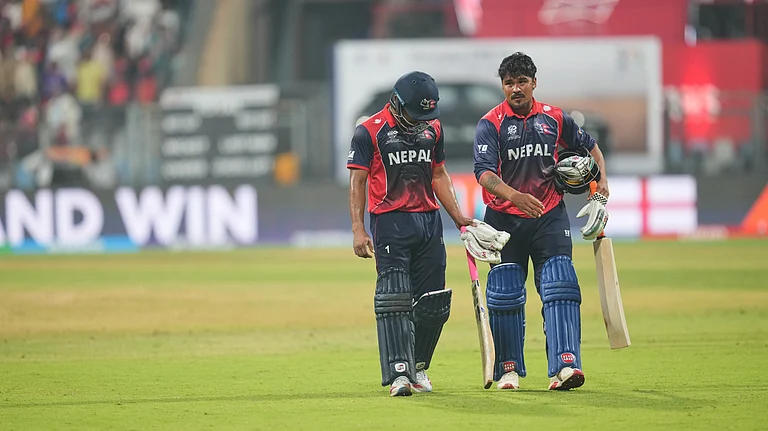
A City Rediscovering Its Joy
Is Calcutta really the city of “lost causes”, as novelist Amitav Ghosh labelled it recently? It is tempting to agree. But I have never found its people so suffused with hope and expectation as I have after Mamata Banerjee swept to power, decimating a sclerotic Communist regime which loved to call her “that woman”, among other things. Some years ago, during the high noon of the Buddhadeb Bhattacharya government—a time when he was being toasted by giddy businessmen and media folk alike—I was sitting with the venerable and sharp Ashok Mitra, who once famously said he was a “Communist, not a gentleman”. Dr Mitra revealed that he was worried about how the Left Front government was moving away from the values it once held dear. “But it has one insurance policy,” he said. “Mamata Banerjee. As long as she is around, they need not worry.” How the tables have turned.
The Adda Will Be Televised
There is a frisson in the city’s once stale air. People talk excitedly about their hopes for change on the streets, in their homes and in packed eateries. On prime time TV one evening, I found a bunch of young filmmakers—not supercilious bhadralok auteurs, but a new generation of scruffy, enterprising commercial directors who make glossy local song-and-dance blockbusters with names like Paglu—talking about their hopes for making a greater number of popular movies in this “new Bengal”. Nightly, on chat shows, teachers, students, singers, poets, writers and artists talk endlessly about how this is a “historic opportunity” to reform Bengal. “There have been a lot of wrongs perpetrated by the previous regime,” a well-respected academic warned one night during a noisy talkathon, “and now many of the wrongdoers are planning to cross the fence. We should be careful.” Many reports about the abject state of Bengal in the mass circulation Ananda Bazar Patrika actually run under a slug called “Mamata Dekhun” (Look into it, Mamata) carrying the new CM’s sketch. She must find this tsunami of expectations scary.
Parade Of Half-Naked Bobbies
Mamata has set a scorching pace, burning the midnight oil at Writers Building, working on weekends, holding meetings to “turn Calcutta into London”, pushing through a controversial law to take back the Singur land from the Tatas, and extracting hefty federal packages to resuscitate a bankrupt state. But what’s really making news are her surprise visits, which have rattled the sleepy officialdom and workers. Mamata barges into police barracks and hospitals unannounced, asks pointed questions, and in one instance, suspends a glum hospital chief for being brusque and objecting to the media scrum which merrily follows her around. She usually promises to solve problems in a matter of months. It’s a bit of a burlesque—governance as spectacle.
The newspapers are brimming with breathless reports of her outings. My favourite is this report in The Telegraph about her visit to a police barracks in the city recently: “Policemen in various states of undress were sleeping or playing carrom or cards. Some stood up and saluted her while others dove for cover. [This correspondent] saw a policeman in shorts rushing out of the room and scaling a wall. Another hid behind a wooden chair while desperately trying to pull on a pair of trousers. Giving the embarrassed policemen barely 20 seconds, Mamata walked back into the room and said: ‘Please tell me what problems you face. Feel free.’ Around 50 cops who were in the room had put on clothes by this time. They gathered around the chief minister but were hesitant to say anything.”
Moral of the story for men—and women—in Didi’s Bengal: Be clothed. Always.
Old World Metropolis
A visit to Calcutta can make for a humbling experience. The illusory ‘Millennium City’ of Gurgaon, where I reside, is a power-less, green-less, soon-to-be-waterless, pot-holed, filthy, dysfunctional, pig-infested suburb dotted with gated islands of affluence filled with delusional folk convinced that India is a superpower-in-the-making. Crowded Calcutta, by comparison, is more ‘real’ and presents a civilisational change. The roads are scrubbed clean—it must rank as one of the cleanest cities in India today—and many are brighter lit than Mumbai.
The traffic is still miserable, and the pace is slow, but Calcutta is miles ahead of the faux Millennium City in essential infrastructure. The food, of course, remains cheap and top class. As I tucked into the iconic Chicken a La Kiev at Mocambo on a packed weekday evening, a couple at the next table discussed the sexual revolution in the West, while another behind me fought over why Manchester United’s hoary history made it the world’s best football club. At a book shop in Salt Lake on Sunday morning, I exchanged banter with two middle-aged gentlemen hunting for books on Jinnah and by Solzhenitsyn. Wasn’t Solzhenitsyn a bit outdated, wondered one gent. The other thought for a moment and said, “But then, that was the only counter-narrative available when we were growing up!
























